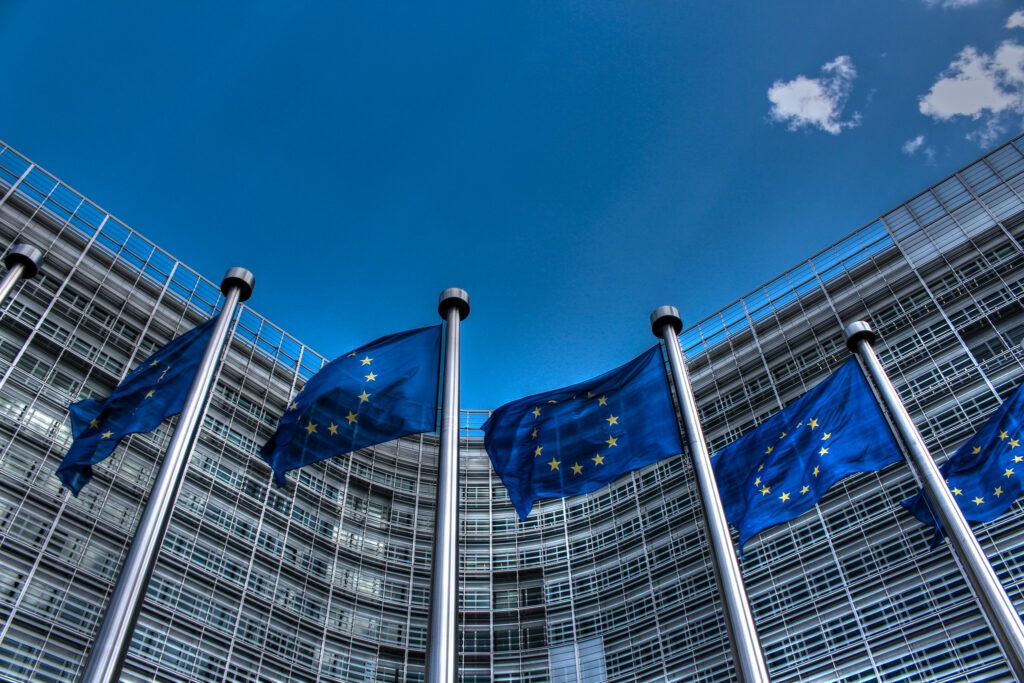The European Union has continued to forge ahead and made a landmark step by adopting a pioneering law amidst global concern over the ethical and practical considerations of artificial intelligence. Last week, EU ministers unanimously agreed to adopt the most groundbreaking law that deals with transformative technology in high-risk situations, such as law enforcement and employment. “The adoption of the Artificial Intelligence Act is a significant milestone for the European Union,” said Belgium’s Secretary of State for Digitalization Mathieu Michel.
These days, artificial intelligence is closely watched worldwide. More than ten countries and some of the largest technology companies in the world gathered last week in Seoul for an AI summit co-hosted by the United Kingdom and South Korea. They pledged to collaborate against the potential risks posed by artificial intelligence, including its potential to escape human control. This EU regulation permits or restricts the use of artificial intelligence according to the danger it poses to humans. It identifies high-risk systems, which can only be used if they respect fundamental rights.
AI systems will be prohibited from biometric categorization based on political, religious, and philosophical beliefs, race, and gender. Prohibited will be using systems that evaluate a person’s behavior or personal characteristics or that can manipulate human behavior. In addition, the use of facial databases of faces that have been recorded indiscriminately through the internet or from audiovisual recordings will be prohibited from being expanded or created about the above. Biometric identification cameras could be used in this respect by security forces, with the corresponding judicial authorization, to prevent terrorist threats.

The law mandates that AI-generated content, like texts, images, or videos, will be labeled as such, potentially safeguarding viewers from deceptive technologies such as deepfakes. High-risk systems must obtain certificates from approved bodies before they can be put on the EU market. A new AI office will oversee the implementation of the law at the EU level. Violations can result in fines of up to 35 million euros or up to seven percent of a company’s annual revenue, depending on the type of violation.
The first draft of the Artificial Intelligence Act was proposed by the European Commission in April 2021, during Portugal’s presidency of the EU Council.
The Artificial Intelligence Act was approved in March 2024 by a majority of the members of the European Parliament. It will be published in the Official Journal of the European Union following the signing by the EU ministers and the presidents of the EU legislative bodies. It shall take effect 20 days after publication. The act’s provisions shall be realized and implemented gradually over the next two years. There will be obligations to transpose the regulation into the national laws of the EU member states, and some countries’ representatives flagged the challenges ahead last week.
“Finding a balance between two approaches—the one to let AI develop and, at the same time, to make sure that smaller companies are not burdened with the bureaucracy, while on the other side, the use of AI in the European environment has its barriers—is something we tried to achieve,” said Ivan Bartoš, Czech Deputy Prime Minister for Digitalization and Minister for Regional Development.
Slovakian State Secretary of the Ministry for Investments, Regional Development and Informatics, Ivan Ivančin, highlighted the importance of the implementation process, noting: “It is a process of learning, and one definitely must make tangible steps to establish a solid base for further development.”.
“Bulgaria’s interim government threw its support behind adopting the Artificial Intelligence Act. The executive director of the Bulgarian Association of Entrepreneurs, Dobromir Ivanov, labeled the law as a step in the right direction but insisted that such implementation should not become too constricting in favor of European interests to the detriment of local business. Included among the policy changes by Prime Minister Kyriakos Mitsotakis was the use of artificial intelligence in healthcare, basically pointing out that AI should be as safe as possible in the management of patient’s data.”.
Slovenian Minister for Digital Transformation Emilija Stojmenova Duh stressed during the process the need for AI experts. “At this moment, not only in Slovenia but in Europe in general, we do not have enough qualified experts, so we need to work on that,” she stated. She believes experts from all member states should participate in the EU regulatory body for artificial intelligence, which the European Commission is establishing. This, she went on to add, will facilitate the implementation of the law in member states.
The first AI research institute in Romania began construction last week at the Technical University in Cluj-Napoca. It will focus on developing new solutions in artificial intelligence for vital areas such as health, transportation, cybersecurity, and more.




+ There are no comments
Add yours